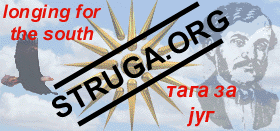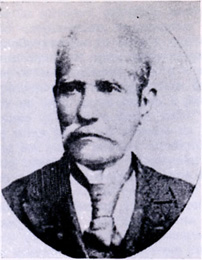
 |
Why the collection of folk-songs by the Miladinovi did not appear under the name of the three brothers |

Naum Miladinov had equal merits with Dimitar and Konstantin in the macedonian renaissance cause. Nevertheless, an enire century had to pass before his identity was finally brought to light, otherwise mystified so much by the biographers of the Miladinovi.
In Struga, the birth-place of the Miladinov brothers, very important documents have been discovered in recent years among which three original manuscripts that were compiled by the third Miladinov brother Naum Miladinov. These are: "Uchebnik po muzika" ("A Music Text-Book"), "Gramatika" ("A Grammar") and "Omilitka" which up to now were generally unknown. The enormous significance of these manuscripts is that they throw clear light upon everything that had been misrepresented in respect of Naum, who was portrayed in the biographies as an incidental figure.
In actual fact, Naum Miladinov graduated from the Spiritual Academy at Constantinople. His special subject was music and he became the first "melographer" of the Macedonian folk-songs. It was he of the three brothers who deserved the greatest merit in the collecting of folk-lore, especially folk-songs. Moreover, because of his loyalty to the Patriarchate of Constantinople, not only were the songs (that he collected) together with their notes (that he prepared) not to be inserted in the collection, at Strossmayer's request, but also the book-collection itself was to be published only under the name of the two brothers Dimitar and Konstantin.